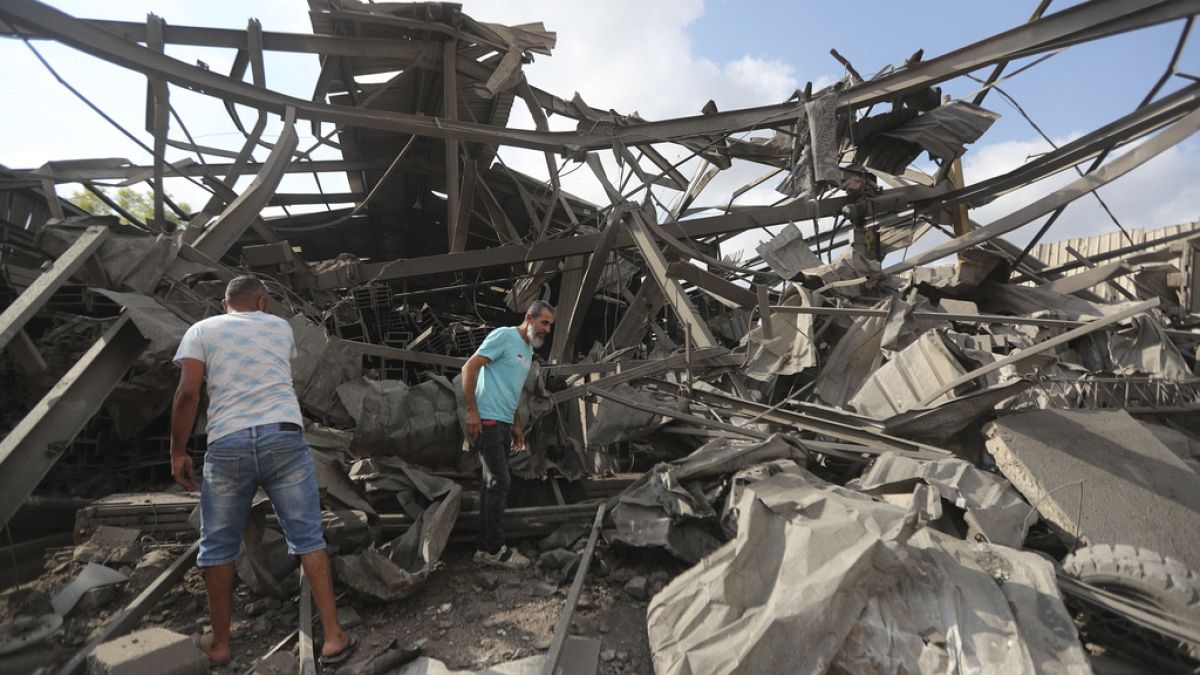More than 500 individuals have lost their lives in the ongoing conflict between Israel and Lebanon since October 8th, with the majority being fighters associated with Hezbollah and other militant groups. The violence escalated when Hamas launched an attack on southern Israel, sparking a war between Israel and Hamas in Gaza. Since then, the Hezbollah militant group and the Israeli military have been engaging in strikes and retaliatory attacks. The latest Israeli strike in southern Lebanon resulted in the deaths of at least 10 Syrian nationals, including a woman and her two children. Five others were injured, two of whom are in critical condition.
The strike, which took place in Wadi al-Kfour in Nabatieh province, is one of the deadliest incidents in Lebanon since the conflict began. The Israeli military claims that the strike targeted a weapons depot belonging to Hezbollah. While Hezbollah has not yet responded to the attacks, they have indicated that they will cease their attacks on northern Israel once a ceasefire is established in Gaza. The conflict has had devastating consequences, with over 500 individuals killed in Lebanon, including 100 civilians. On the Israeli side, 22 soldiers and 25 civilians have lost their lives. In Gaza, the Israeli Defense Forces (IDF) have increased their operations, claiming to have killed dozens of militants in the Khan Younis and Rafah areas.
As the ground operations intensify, many parts of the Gaza strip are experiencing mass displacement of Palestinians despite ongoing peace talks. Over 40,000 Palestinians have been killed since the conflict began, according to Gaza’s Health Ministry. The situation remains volatile, with Israel continuing its strikes on militant targets in Gaza while Hezbollah maintains its attacks on northern Israel. The conflict shows no signs of easing, with both sides vowing to continue fighting until a ceasefire is reached in Gaza. The international community has condemned the escalating violence and called for an immediate end to the bloodshed.
The ongoing conflict between Israel and Lebanon has created a humanitarian crisis, with thousands of individuals being killed or displaced. The United Nations and other international organizations have called for an immediate ceasefire to prevent further loss of life. The violence has taken a heavy toll on civilians, including women and children, who have been caught in the crossfire. The international community must come together to find a peaceful resolution to the conflict and provide aid to those affected by the violence.
As the conflict in the Middle East continues to escalate, the death toll rises, with more individuals being killed or injured in the crossfire. The situation is further complicated by the involvement of multiple militant groups and the ongoing tensions between Israel and Lebanon. Both sides must prioritize the safety and well-being of civilians and work towards a peaceful resolution. The international community must step in to mediate and bring an end to the violence before more lives are lost. The conflict underscores the urgent need for a lasting ceasefire and a comprehensive peace agreement in the region.
The violence in the Middle East has had far-reaching consequences, with innocent civilians bearing the brunt of the conflict. The ongoing bloodshed serves as a stark reminder of the need for peaceful coexistence and dialogue to resolve differences. Both sides must prioritize diplomacy and negotiation over violence and retaliation in order to achieve a lasting peace. The international community must play a role in facilitating talks and ensuring that humanitarian aid reaches those affected by the conflict. Only through cooperation and mutual respect can the cycle of violence be broken and a lasting peace be achieved in the region.










